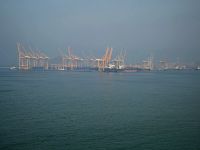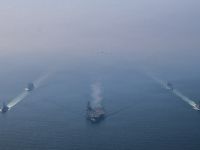Sentenced to death in absentia for ordering killings, the case of Iraqi Vice President Tareq al-Hashemi could revive the political crisis that had largely subsided in recent months. Clearly furious, Mr. Hashemi spoke Monday at a press conference from Turkey, where he took refuge.
"While reconfirming my complete innocence and my guards, I totally reject and will never recognize the unfair, unjust and politically motivated verdict, which was expected at the beginning of this ridiculous lawsuit," he said confirming the line of defense he has adopted since the Iraqi judiciary issued an arrest warrant against him in December. He was convicted of murdering a lawyer and a manager of security services.
Since his escape, Mr. Hashemi, one of Iraq's most senior Sunni political leaders, has continued to attack Shiite Prime Minister Nouri al-Maliki, accusing him of manipulating the Iraqi judiciary.
The secular Iraqiya bloc had set the tone early Monday morning. "The conduct of court hearings only reinforces the feeling that the sentence by the court is politicized and predictable," Iraqiya said in a statement that directed the responsibility towards Mr. Maliki.
It should be noted, however, that the current crisis was largely peaceful since the stormy events of last December. At the time, following the departure of U.S. troops, Iraqiya had led the revolt against Maliki, accusing him of seizing power. Maliki's camp had also tried to remove his Deputy Prime Minister, Saleh al-Mutlaq, a Sunni, who had accused the prime minister of being "worse than Saddam Hussein."
At the same time, charges were brought against Tariq al-Hashemi. He first fled to Iraqi Kurdistan and then Turkey. Both have refused to extradite the politician.
Now, tensions are expected to rise. John Drake, a security specialist projected: "political tensions are likely to escalate in Iraq and relations between Ankara and Baghdad could also worsen in the coming months." Specifically, the death sentence of Mr. Hashemi "will certainly exacerbate divisions between Maliki and Iraqiya. This could hinder the work of Parliament," Judge added.







